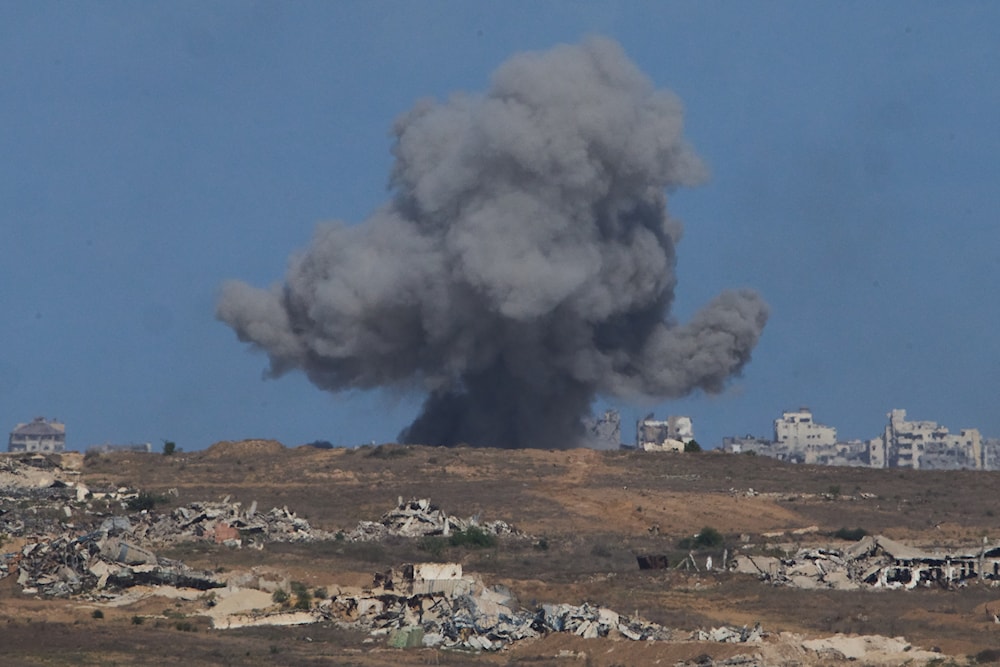Flying promises and bombs: Gazans hopeful, yet deeply distrustful
Palestinians in Gaza report continued strikes and question the credibility of the US-led "peace" efforts.
-

Smoke billows over the Gaza Strip following an Israeli bombardment, as seen from southern occupied Palestine, Sunday, Oct. 5, 2025 (AP)
Even as Hamas agreed to partially accept President Donald Trump’s plan, Palestinians in Gaza remain deeply skeptical, pointing to continued airstrikes and a long-standing climate of mistrust and suffering.
When Arij al-Farra heard the news, her initial reaction was a flicker of hope, followed almost immediately by fear. An Israeli aircraft had dropped a bomb near her tent in Khan Younis, southern Gaza. Though she survived, the attack left her apprehensive about the prospects for "peace".
“I feel like we are in a trap. Whether Hamas agrees or not, we will not be safe … There has been no reduction in the intensity of attacks here, no Israeli aircraft has withdrawn from the sky,” the 23-year-old English teacher, forcibly displaced to Khan Younis, told The Guardian.
Mixed reactions to ceasefire efforts
Farra is not alone in her skepticism. Many Palestinians in Gaza doubt that the partial agreement will end nearly two years of devastation. Trump has repeatedly promised a ceasefire, only for negotiations to collapse abruptly. Earlier this year, "Israel" broke a six-week truce and resumed bombardment, worsening famine in parts of Gaza.
“I have little hope in this deal, because every time we are on the verge of a ceasefire, something happens that changes the course of plans,” Farra said.
Yet some residents still hold on to cautious optimism. Abu Faris, a 43-year-old video editor in northern Gaza, said, “I am hopeful and expect that this time the deal will be more serious than previous ones. A breakthrough in the ceasefire deal would be a good thing. It would meet the demands of the Palestinian people and give civilians in northern Gaza a sense of hope and security.”
Concerns over plan’s bias
Many are convinced that the plan serves Israeli interests. Dr. Ashraf Maghari, a 48-year-old professor at the Islamic University, explained, “There is a sense of mistrust because this plan was drafted by American hands and the war itself has continued with clear American support … The plan clearly serves Israel’s interests and does not include any meaningful provisions for the Palestinians.”
Having lost many relatives to Israeli attacks and been forcibly displaced multiple times, he continues to face ongoing threats as northern Gaza remains heavily bombarded.
In short, neither Faris nor Farra believes that negotiations will lead to genuine self-determination for Palestinians. For Farra, the possibility of disarmament raises additional concern.
It is worth noting that a UN commission of inquiry, multiple human rights organizations, and leading genocide scholars have concluded that "Israel" has committed genocide in Gaza.
Read more: Hamas: Israeli bombing of Gaza exposes Netanyahu’s lies

 3 Min Read
3 Min Read










